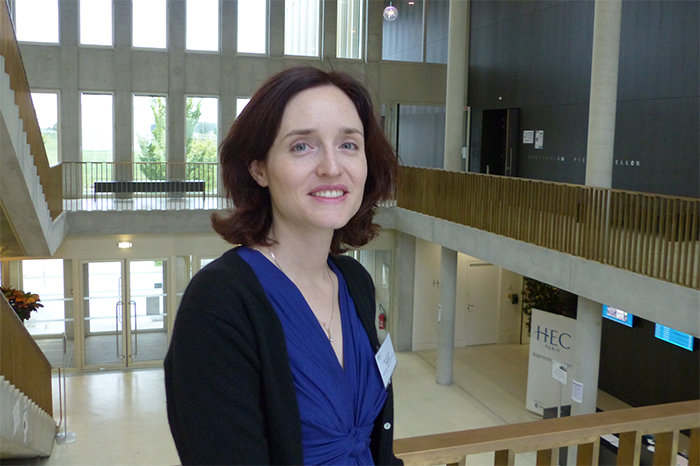Unilend, crowdfunding pioneer at the fintech talent fair
Sabine Fillias, Deputy CEO of Unilend, “we believe we can be the Euronext of small and medium businesses”

To mark the occasion of the second HEC Paris recruitment event dedicated to FinTech – the FinTech Talent Fair – we met up with Sabine Fillias who graduated from HEC Paris Master in Management in 2006, the Deputy CEO of Unilend, a pioneering crowdfunding platform for SMEs. Former student of the Digital Business Specialization, this expert of venture capital and the world of start-ups revisits her career journey and shares with us the innovative spirit which pushes her business forward.
Could you tell us about your career path so far?
I found my passion for start-ups during an internship for the business Chausson Finance, a historic investment boutique that raised capital for start-ups. On finishing my internship, I found myself being offered a permanent job position in the company. I worked for 8 years in this company where I was able to help over 40 start-ups and raise 100 million euros.
Next, I continued to create the fundraising activity of Transaction R, the Rothschild & Cie team dedicated to medium-sized transactions (mid-caps). It was then during my prospecting activities for Rothschild, that I discovered Unilend.
I was really excited by what this start-up was offering, which at the time had only been operating for 9 months, and I wanted to help carry out their first fundraising campaign. Together we managed to achieve an increase in capital of 8 million euros thanks to the prestigious investment funds Ventech, 360 Capital Partners and Bpifrance. I really enjoyed the 6 months working with Unilend, and have been convinced of the significant potential represented by this new market and the vision of its founder. So naturally I decided to join the team.
What does Unilend offer to investors and SME’s?
Unilend is a pioneering player in the French crowdlending sector for SMEs, it entered the market 18 months before its competitors. We are a highly technological business which offers a real marketplace in which financing demands from very small businesses and SMEs and the offers of investors can be matched.
We can today count more than 11 000 active lenders who include individuals but also businesses and investment funds and even one bank (we have a partnership with Groupama bank). Our activity is growing, and the business that today reached over 20 million euros worth of loans.
At Unilend, we select our borrowers and manage financial flows very carefully: the flows of money to the borrower and the flows of loan repayments and interest payments to lenders. I like the idea of comparing our activity with the Euronext of small and medium-sized businesses since we make the connection between the offer symbolised by many categories of lenders, and the demand from SME borrowers.
What role do new technologies play in the organisation of your company’s work?
We are a business of 20 people, a third of which who are developers, with a strongly technical dimension to our activities. We aren’t aiming to become 200 people.
We are in effect obsessed with automation, and we are aiming to optimise our tasks to the maximum. We have, for this reason, developed an in-house algorithm, which allows a first selection of files to take place. It is once this selection has been carried out that our team of risk analysts get to work on identifying the strongest files. It is important to highlight that what we do is constantly changing, our teams being required to participate in the design of our tools.
What types of profiles are you currently looking for?
Above all we are looking for sales and marketing specialist profiles. For sales roles, we are seeking individuals capable of thinking outside of the box who know how to question their own prospecting targets. On the marketing side, we manage a large community of clients. We are therefore looking for profiles who will help us to attract clients, encourage their loyalty and automate our customer service operations as shrewdly as possible. We always hope to offer as straightforward a user experience as possible, and therefore limit the number of difficulties met by our lenders.
What are the next issues that will need to be faced by FinTech firms?
I don’t like using the term FinTech which for me groups together businesses with very different activities and types of customers.
However I do think that the next big issues will be related to regulation, which is both constantly shifting and is not always adapted to the needs of sectors in need of ensuring the public’s trust but which cannot move forward if this trust is constrained before even being able to show how efficient it is.